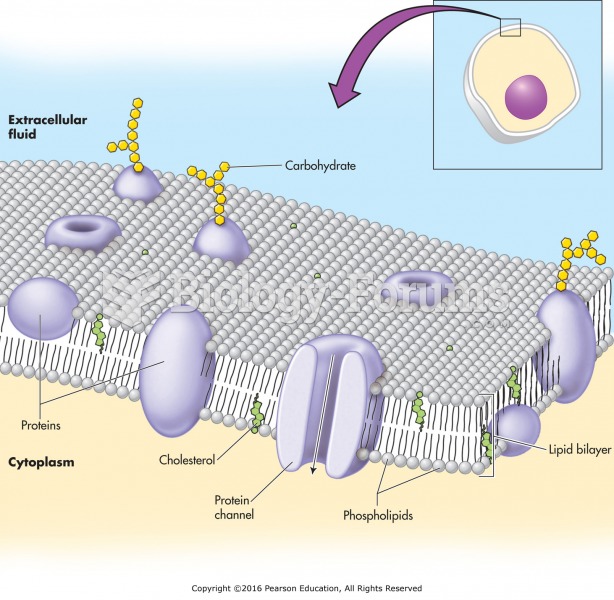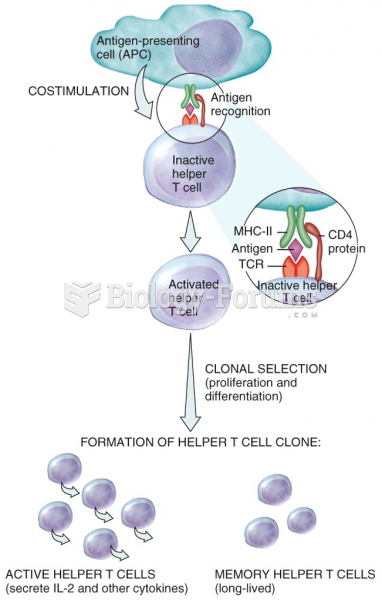|
|
|
Stevens-Johnson syndrome and Toxic Epidermal Necrolysis syndrome are life-threatening reactions that can result in death. Complications include permanent blindness, dry-eye syndrome, lung damage, photophobia, asthma, chronic obstructive pulmonary disease, permanent loss of nail beds, scarring of mucous membranes, arthritis, and chronic fatigue syndrome. Many patients' pores scar shut, causing them to retain heat.
A seasonal flu vaccine is the best way to reduce the chances you will get seasonal influenza and spread it to others.
On average, the stomach produces 2 L of hydrochloric acid per day.
Excessive alcohol use costs the country approximately $235 billion every year.
More than 4.4billion prescriptions were dispensed within the United States in 2016.







